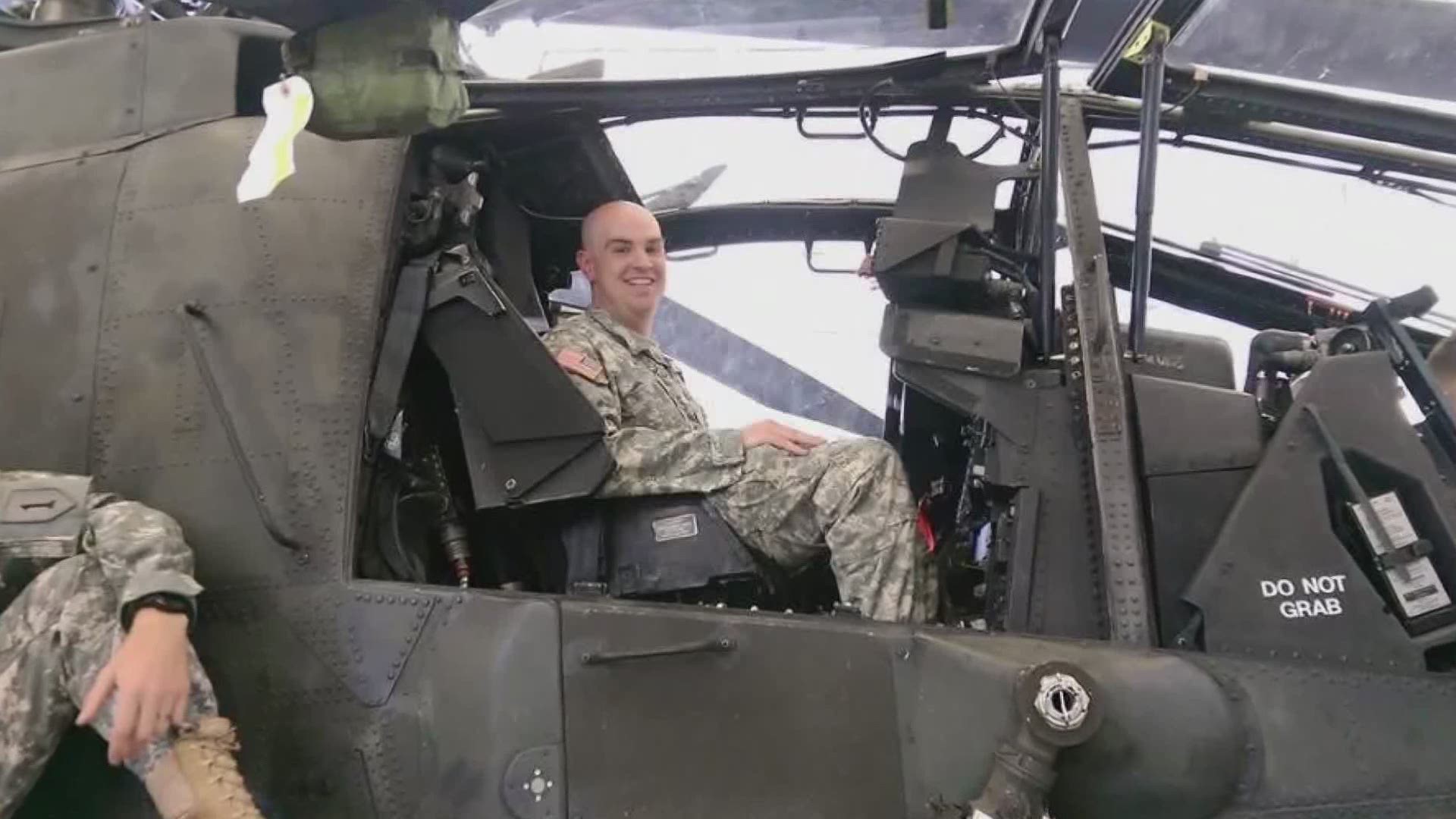GRAND RAPIDS, Mich. - Jordan Mcelroy, 33, of Hudsonville, served eight years in the military with two tours in the Middle East. When he returned to his family in Michigan in 2017, he knew something wasn’t right. He was diagnosed with Fibromylagia and referred to the Mary Free Bed Pain Rehabilitation program.
“It would take me almost an hour to get out of bed in the morning," Jordan says. "Just because I would wake up, and I’d be sore all over and I’d have pain all over, plus just being exhausted so getting my brain to turn back on was just a huge chore.”
Dr. Evan Parks is a Clinical Psychologist at Mary Free Bed that worked with Jordan throughout the ten-week rehabilitation program. He describes Fibromyalgia as a condition that affects more women than men, it often starts when people are in their 20s and will last for ten to 15 years. He says it is not a condition that stays with a person forever, and says typically when a person starts to show symptoms of Fibromyalgia, they often times do not know what it is. In Jordan's case, Dr. Parks says there is a link between Jordan's military experience and his Fibromyalgia diagnosis.
“Every sensory input that a person with Fibromyalgia has is interpreted by the brain as something that should be worried about," says Dr. Parks. "And then when the brain says this should be worried about, it helps us by protecting us and producing pain.”
This is an example Dr. Parks gave 13 ON YOUR SIDE to explain what a person struggling with Fibromyalgia experiences:
“We explain Fibromyalgia as we have a nervous system, and this nervous system can become overly reactive to things. So let’s say you have a young couple and they’re just starting off life together, they go to bed every night and basically hear all the sounds of the neighborhood and while they’re sleeping their brain hears that and puts it in a category of that is not a threat. Then this couple says okay we’re gonna have a baby. So that baby comes along and that first night that couple tries to go to bed. All of a sudden, every single sound that hey hear the brain treats differently, now their nervous system is primed to be very reactive to everything that happens."
Typically, the ten-week rehabilitation program is done at Mary Free Bed in person with a team of patient support. But amid the COVID-19 pandemic, Jordan received his treatment virtually via Mary Free Bed’s “Zoom-like” telehealth platform.
Today, Jordan is doing well and is back to being active with his family.
“I’ve been out for about and month and it's light years better!" explains Jordan. "I’ve gotten to the point where seven days a week I was having pain down to once maybe twice a week and when I do have problems I have to tools to sit down and reset my brain.”
Dr. Parks says seeing Jordan regain his active lifestyle, is proof that the Mary Free Bed treatment program was a success.
“Throughout Jordan’s time in the program, there were some very specific points along the way where you could see the light bulb go on and there would be this really remarkable increase in his ability to do things," remarks Dr. Park.
More stories on 13 ON YOUR SIDE:
►Make it easy to keep up to date with more stories like this. Download the 13 ON YOUR SIDE app now.
Have a news tip? Email news@13onyourside.com, visit our Facebook page or Twitter. Subscribe to our YouTube channel.

